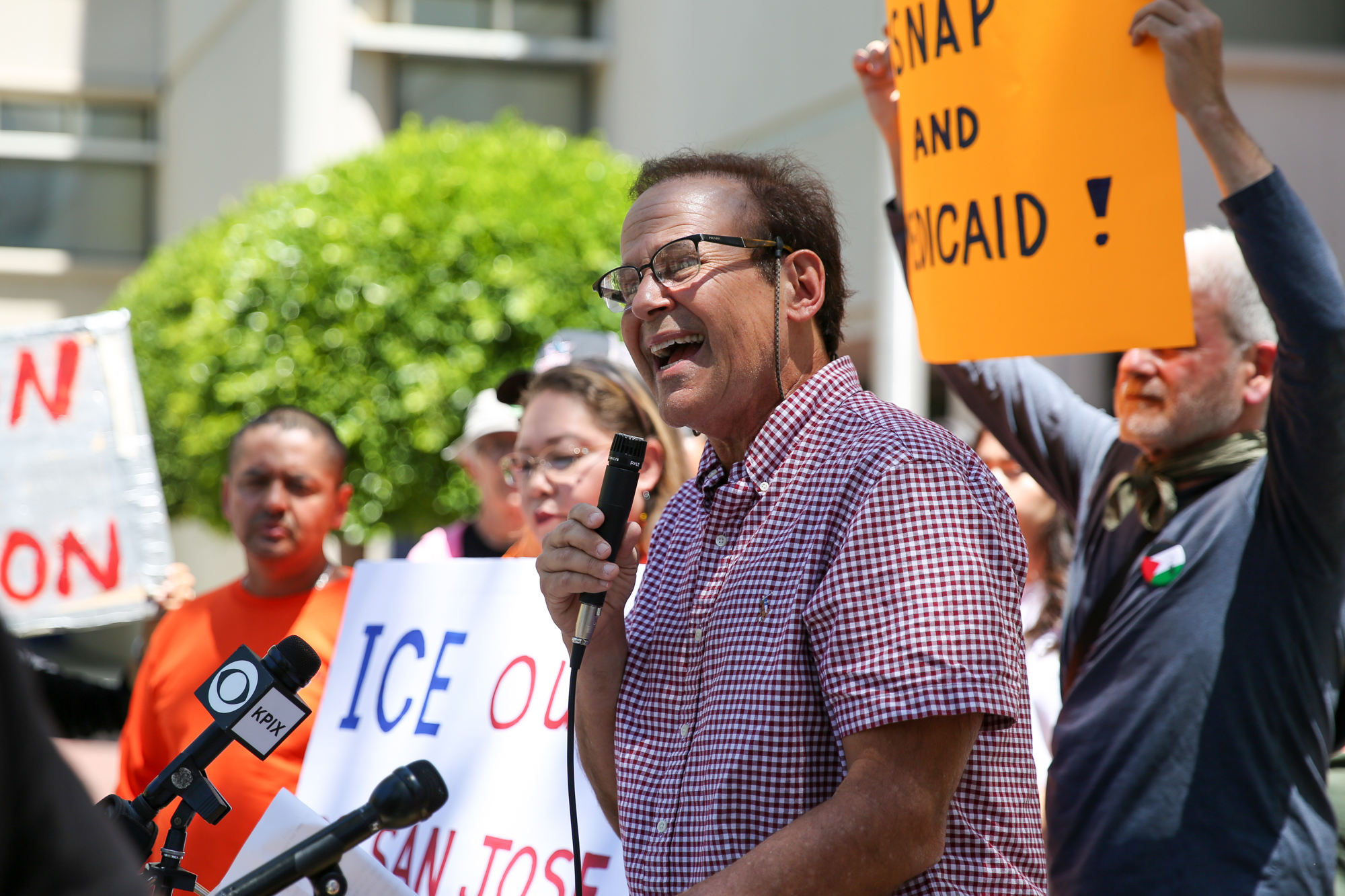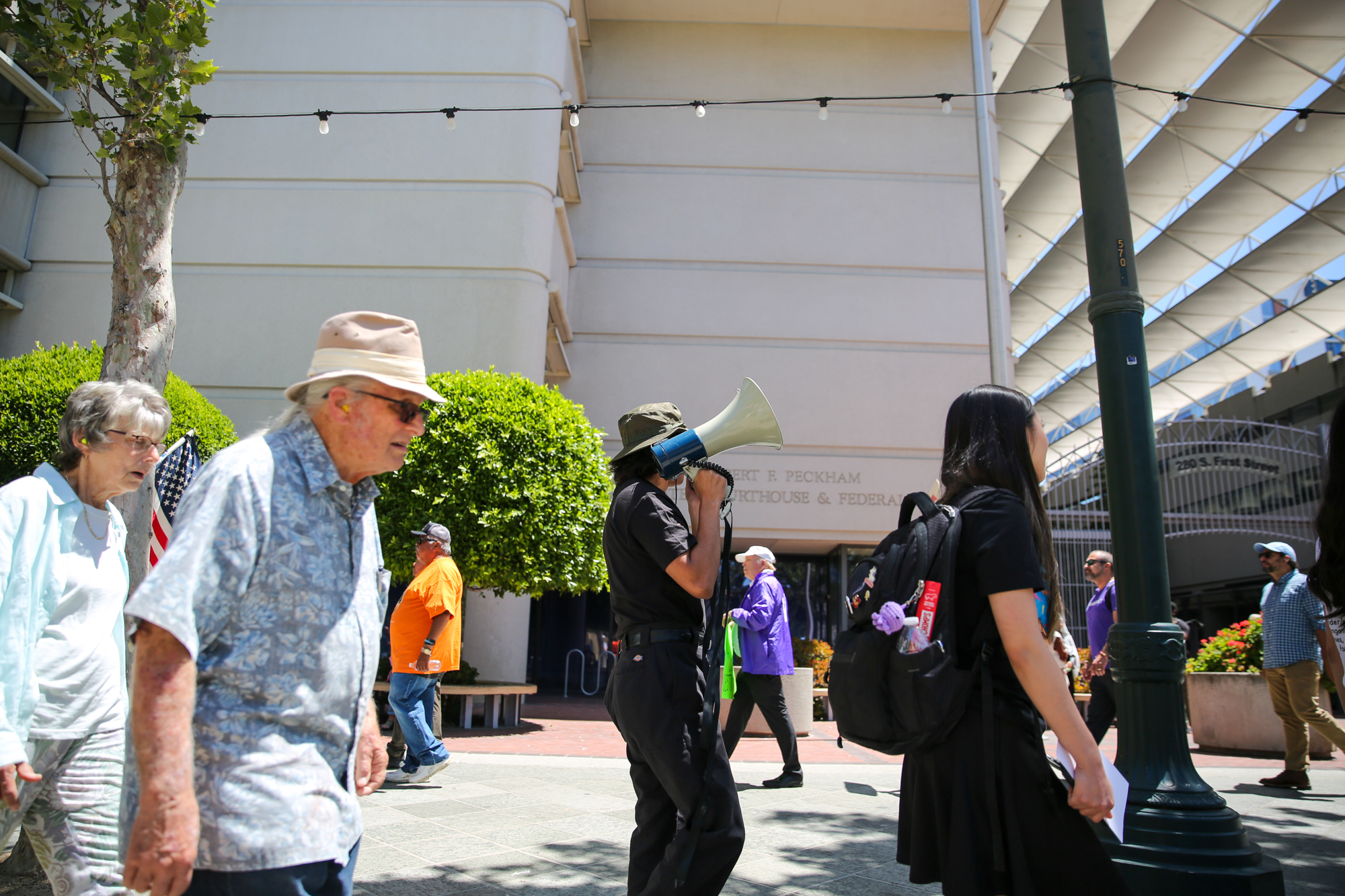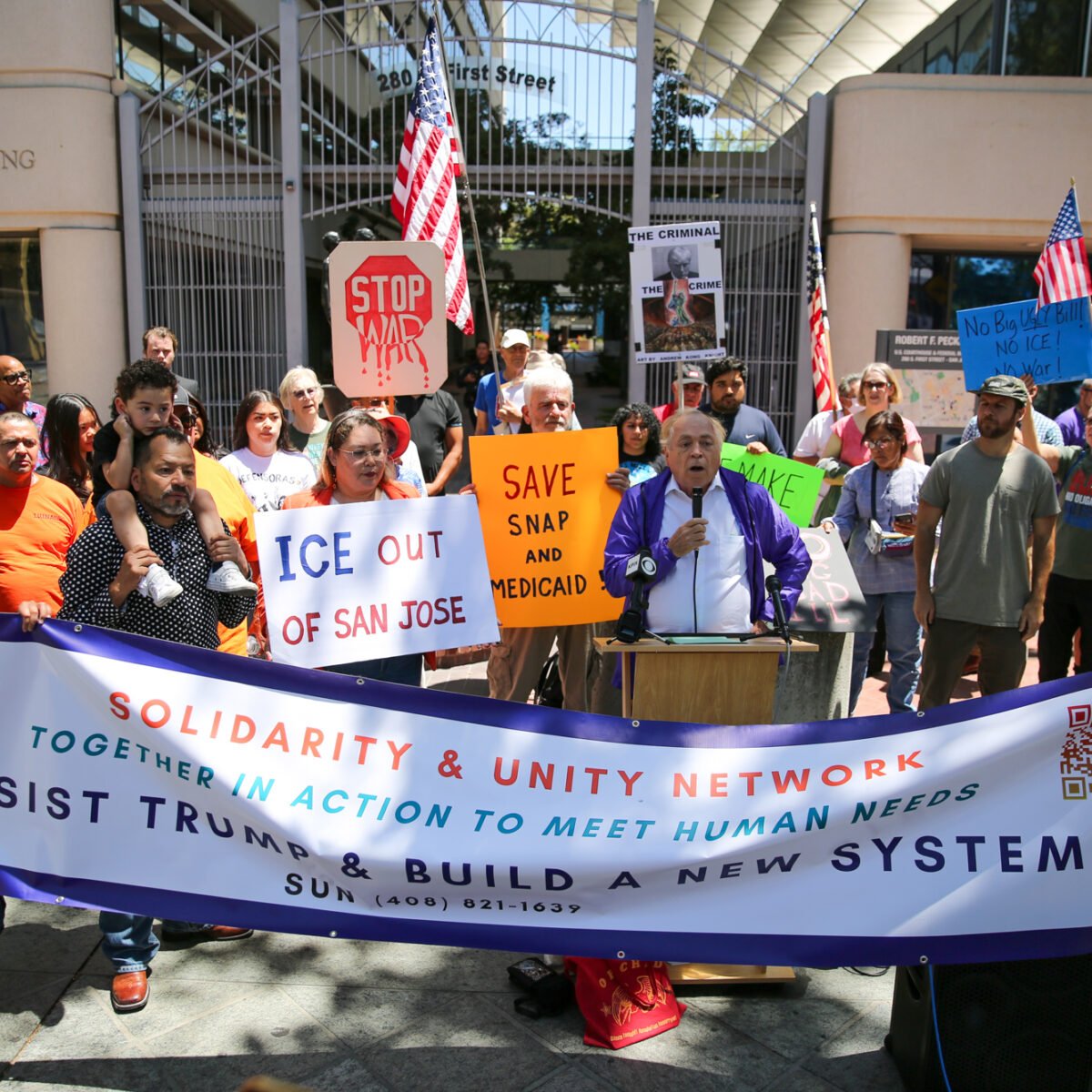“The Trump administration has weaponized our money to spend billions on fear, violence, kidnapping our community members from our streets, detaining and abusing children and families without proper access to medical attention, separating and deporting our loved ones without so much as a court hearing, and forcing us to drain our savings for necessary health care and education expenses,” Woo said during the rally.
The changes to Medicaid alone, known as MediCal, could push more than 1 million Californians out of the program, a recent analysis by the Urban Institute found.
Darcie Green, the executive director of healthcare nonprofit Latinas Contra Cancer, said the bill is “shameful.”
“It isn’t a budget, it’s a heist. In our communities, MediCal isn’t optional. It’s how people access cancer treatment, medication, prenatal care, it is how our families survive,” Green said during the rally. “We will not let this system sacrifice our people so billionaires can buy a third yacht and ICE can build another detention center.”

The cuts to SNAP, which currently provides money for groceries for 40 million Americans, could be up to $300 billion, crippling the program and putting greater strain on already stretched thin food banks.
Bay Area food bank leaders said earlier this month that the bill could lead to hundreds of thousands of residents locally losing a major chunk of their monthly food budget, or being cut off altogether.
Scott Myers-Lipton, a professor emeritus of sociology at San José State University, who until last year led the publication of the annual Silicon Valley Pain Index — which reports on the region’s disparities in health, wealth and education — said the federal budget bill will only exacerbate worsening inequality, locally and nationwide.
“So here we have a Trump tax cut, a budget bill, that’s really going to give 68% of all the benefits to the top 10%, and the bottom 10%, the ones that have been struggling the most, are going to get a $1,600 cut in their annual budget. So to me, it just doesn’t seem right,” Myers-Lipton said.

“Really, this is about the American dream, and cutting the possibility for so many people in our community to achieve the American Dream, which is the right to have enough food, to have a place to live, to send your kid to a good school, to have health care. Just the basics,” he added.
Hobbs said Thursday’s action is a small example of the kind of intersectional protests and solidarity that will be needed to push local, state and national leaders to fight back against these proposed changes to American life.
“People are beginning to recognize that they need to get out of their bunker — out of their house, and … out of their silo,” Hobbs said.
“If they stay in their silo, for example, and only represent women or only represent immigrants or only represent the environment or only represent labor, then we’re never going to reach a point where we can have the mass protest that’s going to be necessary to make change in this country.”





